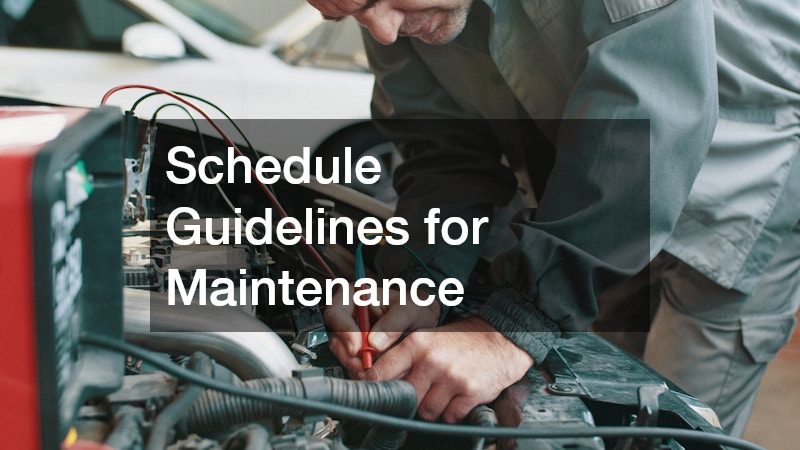The importance of regular maintenance in ensuring the longevity and efficiency of vehicles cannot be overstated. With rising repair costs, vehicle owners are often faced with the dilemma of either paying for unexpected repairs or investing in preventative maintenance. This article will explore the critical role that regular maintenance plays in saving money and preventing costly auto repairs, offering insights and solutions to common questions.
Regular Maintenance is Crucial for Vehicle Health
Understanding Preventive Maintenance
Preventive maintenance is a proactive approach to vehicle care that aims to address minor issues before they escalate into serious problems. By regularly checking and maintaining essential components such as the engine, brakes, and tires, vehicle owners can avert expensive repairs in the future.
Ultimately, preventative maintenance is integral to prolonging a vehicle’s lifespan and ensuring it runs smoothly.
Regular oil changes, brake inspections, and tire rotations are some examples of preventative maintenance tasks that can be scheduled easily. These tasks not only improve vehicle performance but also enhance safety on the road. Skipping regular maintenance can result in gradual wear and tear, leading to critical failures that necessitate costly interventions.
Commonly Overlooked Maintenance Tasks
Despite its importance, several maintenance tasks are frequently overlooked, potentially leading to severe consequences. Checking fluid levels, such as the coolant, transmission fluid, and brake fluid, is often neglected but crucial for optimal vehicle performance. Ignoring these checks could result in engine overheating, transmission failure, or brake system malfunctions.
Maintaining the battery and ensuring the electrical system is functioning correctly are other tasks often skipped by vehicle owners. A dead battery or a faulty alternator can leave drivers stranded and lead to significant repair costs. Regular inspection and cleaning of battery terminals, along with timely replacement, can prevent such issues.
Regular Maintenance Saves You Money
The Cost-Benefit Analysis of Regular Maintenance
Engaging in regular maintenance is a cost-effective strategy to avoid unexpected and hefty auto repair bills. A well-maintained vehicle runs efficiently and is less likely to suffer from sudden breakdowns, resulting in fewer emergency repairs. By spending a modest amount on routine upkeep, vehicle owners can bypass costly repair scenarios that arise from neglect.
The economic benefits of maintenance extend beyond just avoiding repair costs; a well-maintained vehicle retains a higher resale value compared to one that is neglected. Prospective buyers are willing to pay a premium for vehicles with a detailed maintenance history, making regular upkeep a savvy financial decision. Therefore, maintenance not only reduces repair expenses but also enhances the vehicle’s market value.
Case Studies of Maintenance Leading To Savings
In a real-world example, a fleet company implemented a strict maintenance schedule and observed a significant reduction in vehicle downtime and repair costs. By ensuring that all their vehicles underwent routine checks, the company saved thousands of dollars annually, demonstrating the financial benefits of maintenance. Preventative measures like regular oil changes and brake inspections played a pivotal role in these cost savings.
Another case involved a private vehicle owner who documented a decade of maintenance records, resulting in a high resale value when selling the car. The maintenance history provided assurance to potential buyers, allowing the seller to command a premium price. This example highlights how regular maintenance can enhance vehicle value and yield substantial financial rewards.
Similarly, a study conducted on a group of vehicle owners over five years indicated that those performing regular maintenance incurred lower repair bills compared to those who did not. The study found that maintenance-focused owners avoided major mechanical failures and associated expenses. Such cases emphasize the practical and financial merits of a proactive maintenance approach.
A Standard Maintenance Routine
Essential Maintenance Tasks
A standard vehicle maintenance routine involves several crucial tasks designed to keep the vehicle in optimal condition. Oil changes, ideally performed every 3,000 to 5,000 miles, are vital for engine health and longevity. Brake inspections and necessary replacements ensure safety and avoid extensive damage to the brake system.
Regular tire rotations and alignments are essential for even wear and improved fuel efficiency. These tasks help maintain traction, prevent uneven wear, and enhance overall vehicle handling. Additionally, checking and replacing air filters contribute to better fuel efficiency and engine performance.
Inspecting fluid levels and topping them up as needed is another critical aspect of routine maintenance. Ensuring proper levels of coolant, transmission fluid, and brake fluid helps prevent overheating and mechanical failures. Such comprehensive maintenance routines ensure the vehicle remains reliable and efficient over its lifespan.
Schedule Guidelines for Maintenance
The frequency of maintenance tasks can vary based on the vehicle model, age, and mileage, making it essential to follow manufacturer guidelines. For older vehicles, more frequent checks might be necessary to preemptively address wear and tear. Newer models may come with onboard systems that remind owners of upcoming maintenance due, streamlining the process.
Typically, oil changes and fluid checks are recommended every three months or 3,000 miles, while tire rotations may be done with every oil change. A biannual or annual visit to a mechanic for a comprehensive check-up can uncover hidden issues and ensure all systems are functioning efficiently. Adhering to these schedules helps maintain vehicle health and avoid unexpected repairs.
Regular vehicle maintenance is a pivotal strategy in avoiding costly auto repairs, extending vehicle lifespan, and ensuring safety. By adhering to a well-structured maintenance routine, vehicle owners can prevent minor issues from escalating into major problems, save money, and optimize their vehicle’s efficiency and reliability. The benefits of regular maintenance are clear, emphasizing the necessity for proactive care to enjoy long-term financial and operational gains from any vehicle.



